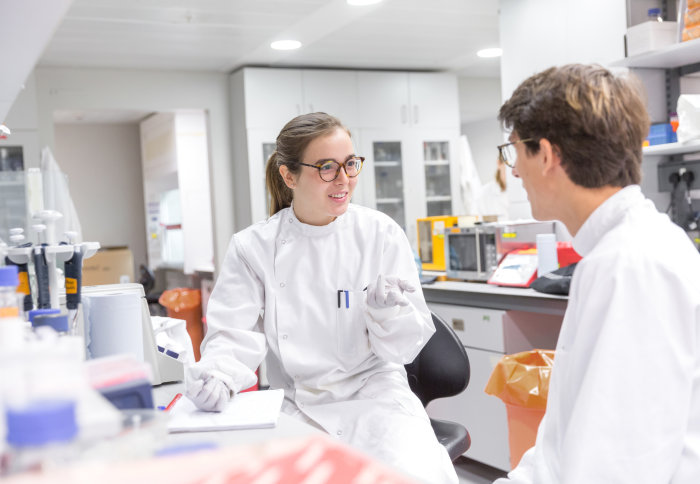Five new women-led startups building a better future

Martina Oliver Huidobro, from MiCHIP
From pioneering diagnostic tools to next-generation construction materials, Imperial’s female students are at the helm of ground-breaking businesses.
Next week, as part of Enterprise Month, five new female-founded startups will battle it out in the final stage of the College’s WE Innovate Programme.
The WE Innovate Programme, run through Imperial Enterprise Lab, is designed to inspire and accelerate the progress of women entrepreneurs. Open to all female students, it consists of a series of workshops, talks by business leaders, and one-to-one mentoring sessions to help participants develop their innovative ideas.
At the final, held on Thursday 7 March, the finalists will pitch in front of a live audience for a chance to win a share of a £30,000 prize fund, sponsored by BP.
Imperial’s Enterprise Month 2019 will include four weeks full of showcases, competitions and exhibitions, highlighting the best of student innovation and entrepreneurship from across the College.
Eco-friendly fertilisers

Bio-F Solutions, led by PhD students Marine Valton and Laura de Arroyo Garcia from the Department of Life Sciences, is developing sustainable and organic alternatives to synthetic fertilisers that could transform future food production.
Their “biofertilisers” are made from micro-organisms such as algae, which can replenish essential nutrients in the soil and promote health crop growth without the need for chemical fertilizers, which can have harmful effects on the environment.
The team say that these micro-organisms could be grown in wastewater, directly contributing to wastewater cleaning.
Innovative disease detection

Team MiCHIP, co-led by undergraduate student Martina Oliver Huidobro, is working to develop a low-cost, portable test which could detect a range of diseases at the bedside.
The test would work by detecting small molecules called microRNA in the blood. These are powerful biomarkers for disease, but current tests require expensive laboratory equipment and require large amounts of blood to evaluate.
The team aims to roll out their technology to tackle the problem of late diagnosis in pancreatic cancer.
Smart wearables

Changavy Kajamuhan is co-leading the development of Tommy, a non-invasive wearable device which uses machine learning software to help accurately the glucose levels in people with type 1 diabetes. Changavy, a medical student, is currently taking the Intercalated BSc programme at Imperial College Business School.
The team says that Tommy can alert patients 20 minutes before glucose levels deviate from the target range. This advanced warning would help patients to take action before complications occur and help prevent a potentially life-threatening hypoglycaemic attack.
Tommy is estimated to be ten times cheaper than its competitors, providing diabetes patients with an affordable way to manage the disease.
Next generation casts

Cadget, which is led by medical student Suchaya Mahuttanatan, is pioneering a breathable, washable and comfortable cast for patients with broken bones or fractures.
The cast is made using a specially engineered material that can be activated to turn from flexible to permanently stiff in just a few minutes. This allows it to be perfectly moulded onto the patient before it becomes rigid.
Cadget is also less bulky than traditional casts, while conserving the same strength.
Groundbreaking construction materials

Orbit Materials is founded by Sophie Paisley- Marshall, a postgraduate student from the Department of Civil and Environmental Engineering. She is creating “carbon-negative” construction materials from waste products.
Sophie is developing a treatment which successfully improves the quality of a waste product - such as the ash produced in industrial incineration facilities – so that it can be repurposed for use in the construction industry.
In doing so she hopes to promote a “circular economy” – maximising the value of resources, reducing waste, and reducing the strain on raw materials.
Article text (excluding photos or graphics) © Imperial College London.
Photos and graphics subject to third party copyright used with permission or © Imperial College London.
Reporter
Deborah Evanson
Communications Division